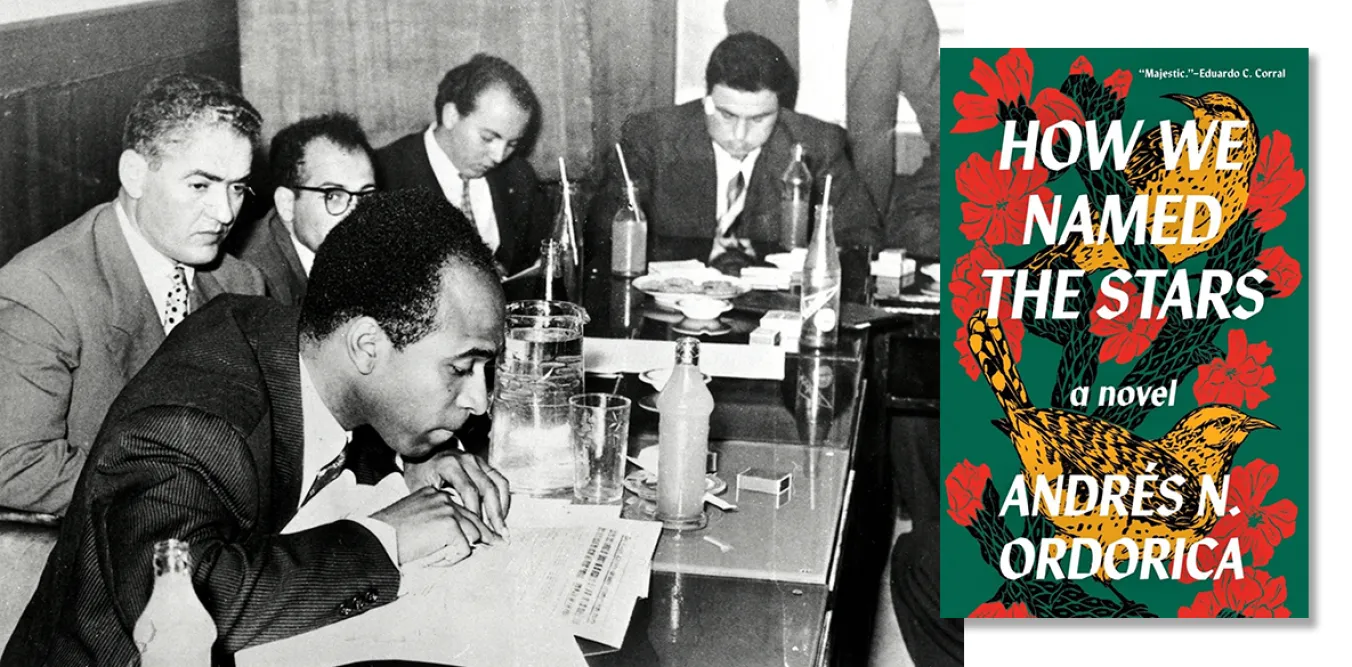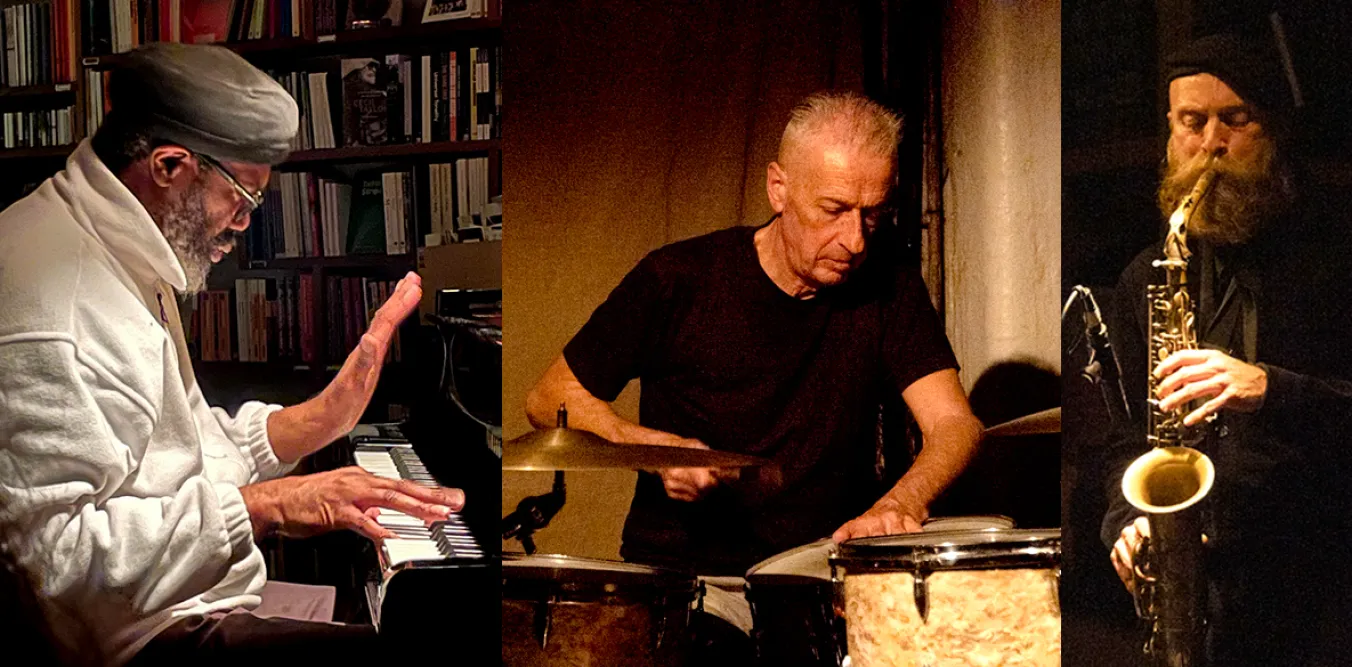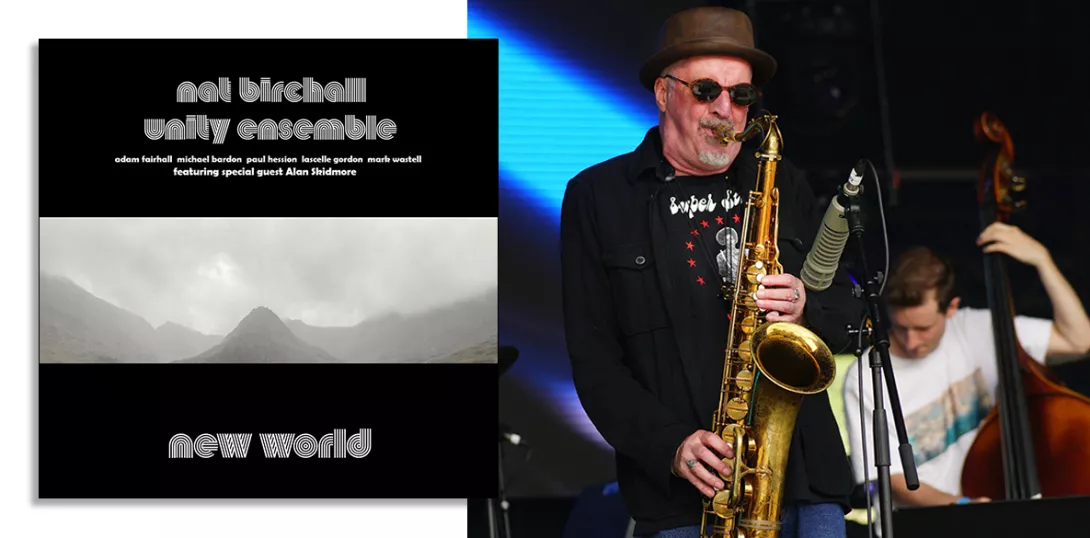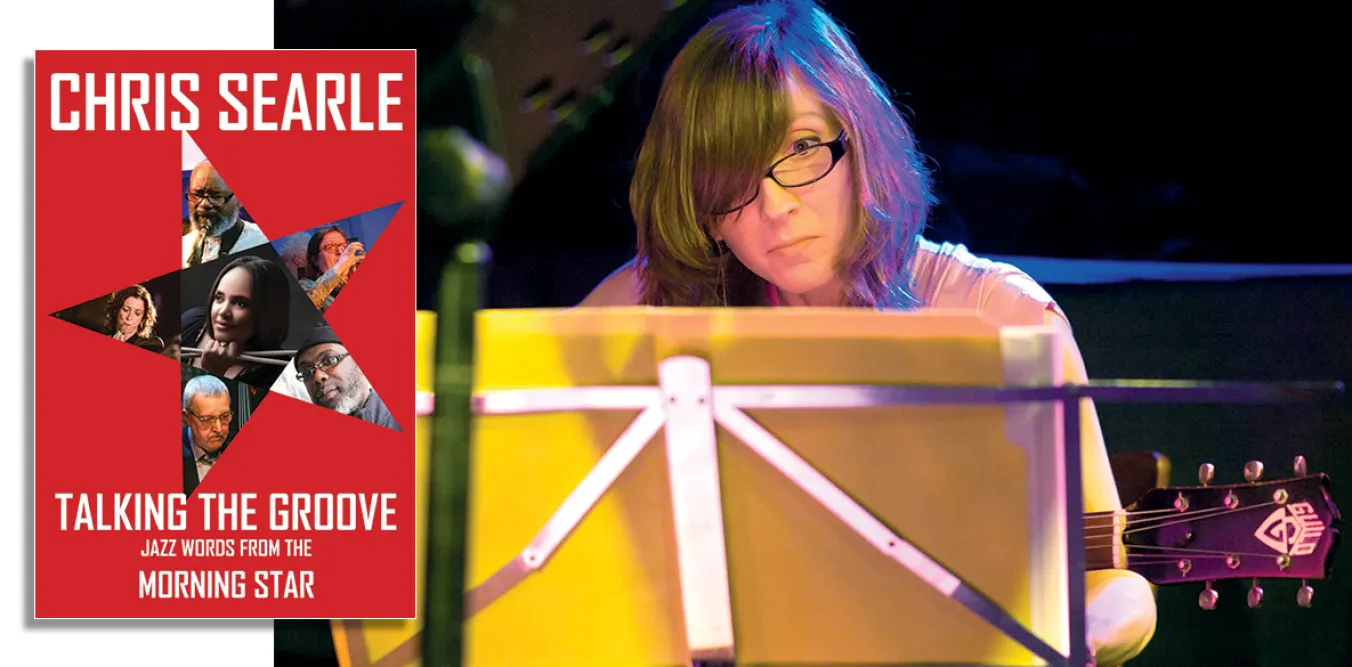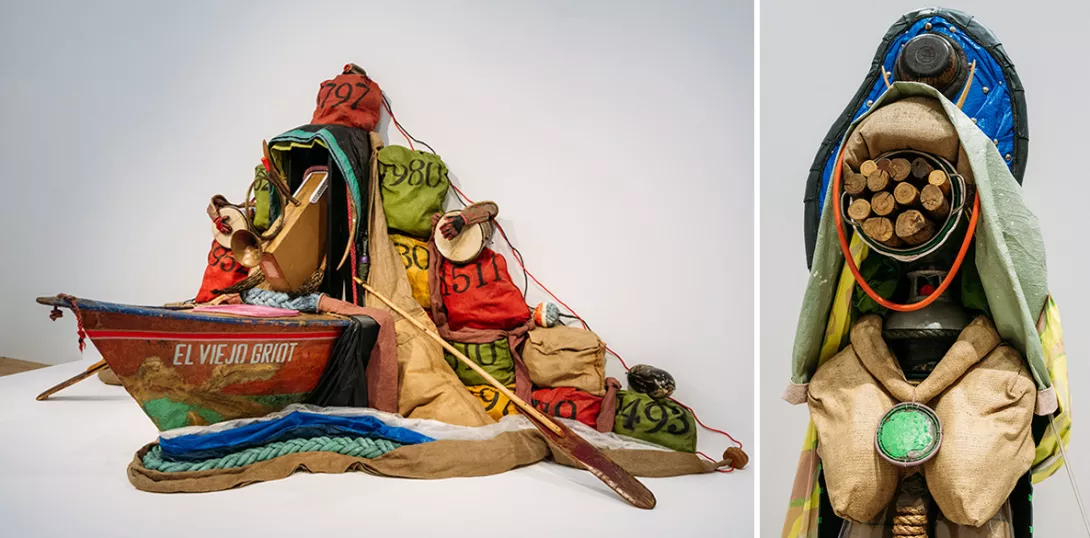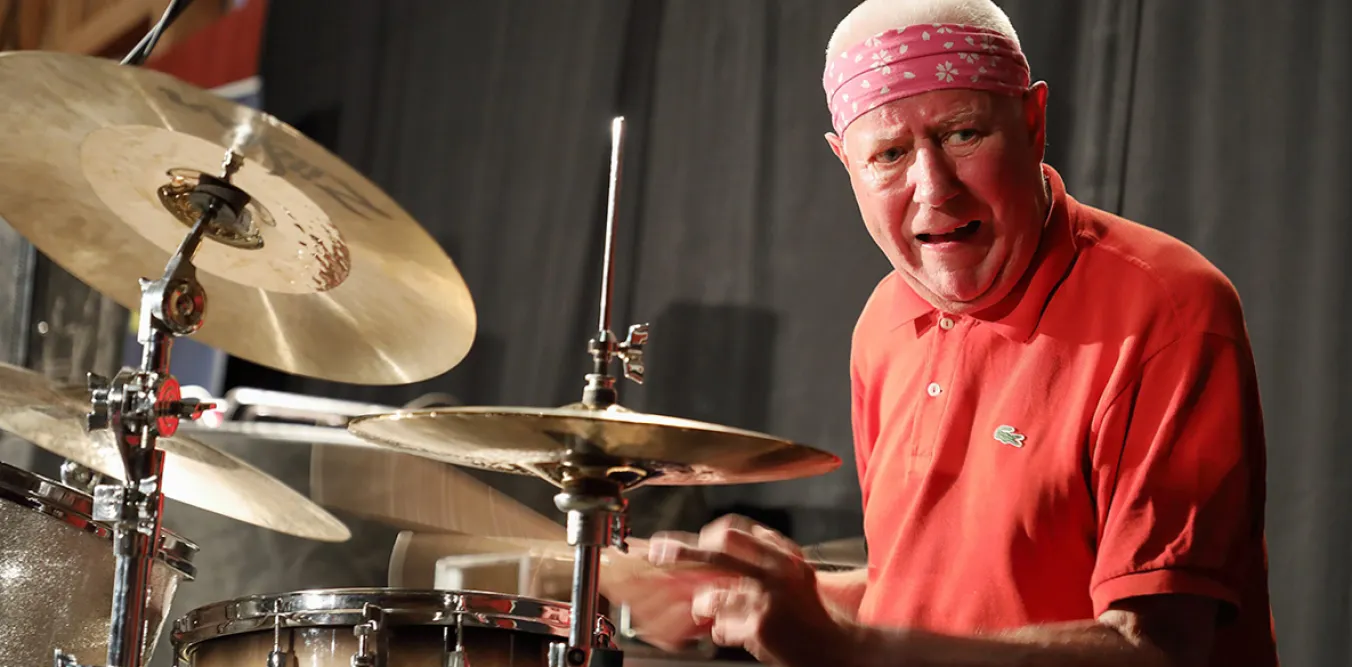
Aine O’Dwyer and Han Bennink
Cafe Oto, London
A brilliantly unlikely musical encounter took place in Dalston, East London last week. Standing on the stone floor of the Cafe Oto before a packed house was the sculpted form of a beautiful wooden harp, next to an unremarkable set of drums. These were the instruments of the Limerick-born harpist Aine O' Dwyer, and the octogenarian Dutch free drummer, Han Bennink, who as a young man in the 60s had played and recorded with legendary U. S. saxophonists Dexter Gordon and Ben Webster, and had been the drummer on Eric Dolphy's last date in 1964, in Hilversum, Holland.
Bennink introduced the session by saying that he had never played with a harpist before, while O' Dwyer smiled, her head leaning warmly against the upright of her harp.
What followed was a unique sequence of improvised chamber jazz pieces, with Bennink's toms and rattling snares making undercurrents of forthright rhythms. He drummed his knees and struck a drumstick clenched between his teeth with another, while O' Dwyer played softly, sometimes singing wordlessly above Bennink's percussive perturbations, sometimes stroking her strings so wistfully, you thought it was a lullaby she was making for those mothers and children outside pushing their prams in the seething Hackney streets.
